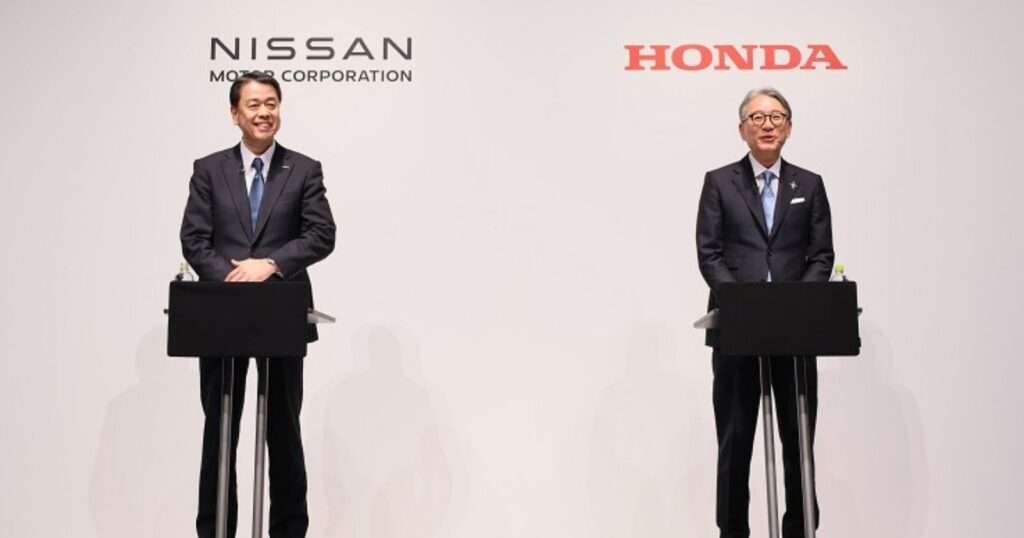Honda and Nissan Explore Potential Partnership to Strengthen EV Market Position
Tokyo, May 27, 2025 — Honda Motor Co. and Nissan Motor Co. are reportedly considering a new strategic alliance aimed at enhancing their competitiveness in the evolving global automotive sector. This prospective collaboration would focus on advancing electric vehicle (EV) technologies and sharing resources to keep pace with industry transformations.
According to insiders, while earlier talks between the two companies had not progressed, recent developments suggest renewed discussions are underway. The alliance would likely involve joint efforts in research and development, shared manufacturing capabilities, and collaborative development of EV platforms—key components in the ongoing shift toward sustainable mobility.
The automotive industry is undergoing significant change due to stricter environmental policies, technological breakthroughs, and changing consumer demands. By joining forces, Honda and Nissan can combine their expertise and resources to lower costs, accelerate innovation, and enhance operational efficiency, crucial factors as competition intensifies among automakers globally.
Industry experts suggest that the alliance could provide both companies with a stronger foothold in the fast-growing EV market. “Collaboration allows automakers to leverage complementary strengths and better respond to competitive pressures,” said a senior analyst in the automotive sector.
Previously, Nissan had an alliance with Renault and Mitsubishi, focusing on technology sharing and market access. However, evolving strategies have led Nissan to explore new partnership options. Similarly, Honda has traditionally maintained an independent approach but is now increasingly open to alliances that support its long-term growth, particularly in the electric vehicle domain.
Areas expected to benefit from the partnership include battery innovation, autonomous driving technology, and connected car services. The alliance could also open doors for joint ventures in emerging markets, broadening their global presence.
While specific details remain confidential, both companies are optimistic about the prospects, emphasizing that any agreement would require careful alignment of strategic goals and regulatory approvals. Formal announcements may follow after these considerations are addressed.
In summary, the potential alliance between Honda and Nissan reflects broader industry trends where collaboration is becoming essential to drive innovation and sustainability. If finalized, this partnership could significantly influence the competitive landscape and accelerate the adoption of electric vehicles worldwide.
Tokyo, May 27, 2025 — Honda Motor Co. and Nissan Motor Co. are reportedly considering a new strategic alliance aimed at enhancing their competitiveness in the evolving global automotive sector. This prospective collaboration would focus on advancing electric vehicle (EV) technologies and sharing resources to keep pace with industry transformations.
According to insiders, while earlier talks between the two companies had not progressed, recent developments suggest renewed discussions are underway. The alliance would likely involve joint efforts in research and development, shared manufacturing capabilities, and collaborative development of EV platforms—key components in the ongoing shift toward sustainable mobility.
The automotive industry is undergoing significant change due to stricter environmental policies, technological breakthroughs, and changing consumer demands. By joining forces, Honda and Nissan can combine their expertise and resources to lower costs, accelerate innovation, and enhance operational efficiency, crucial factors as competition intensifies among automakers globally.
Industry experts suggest that the alliance could provide both companies with a stronger foothold in the fast-growing EV market. “Collaboration allows automakers to leverage complementary strengths and better respond to competitive pressures,” said a senior analyst in the automotive sector.
Previously, Nissan had an alliance with Renault and Mitsubishi, focusing on technology sharing and market access. However, evolving strategies have led Nissan to explore new partnership options. Similarly, Honda has traditionally maintained an independent approach but is now increasingly open to alliances that support its long-term growth, particularly in the electric vehicle domain.
Areas expected to benefit from the partnership include battery innovation, autonomous driving technology, and connected car services. The alliance could also open doors for joint ventures in emerging markets, broadening their global presence.
While specific details remain confidential, both companies are optimistic about the prospects, emphasizing that any agreement would require careful alignment of strategic goals and regulatory approvals. Formal announcements may follow after these considerations are addressed.
In summary, the potential alliance between Honda and Nissan reflects broader industry trends where collaboration is becoming essential to drive innovation and sustainability. If finalized, this partnership could significantly influence the competitive landscape and accelerate the adoption of electric vehicles worldwide.



